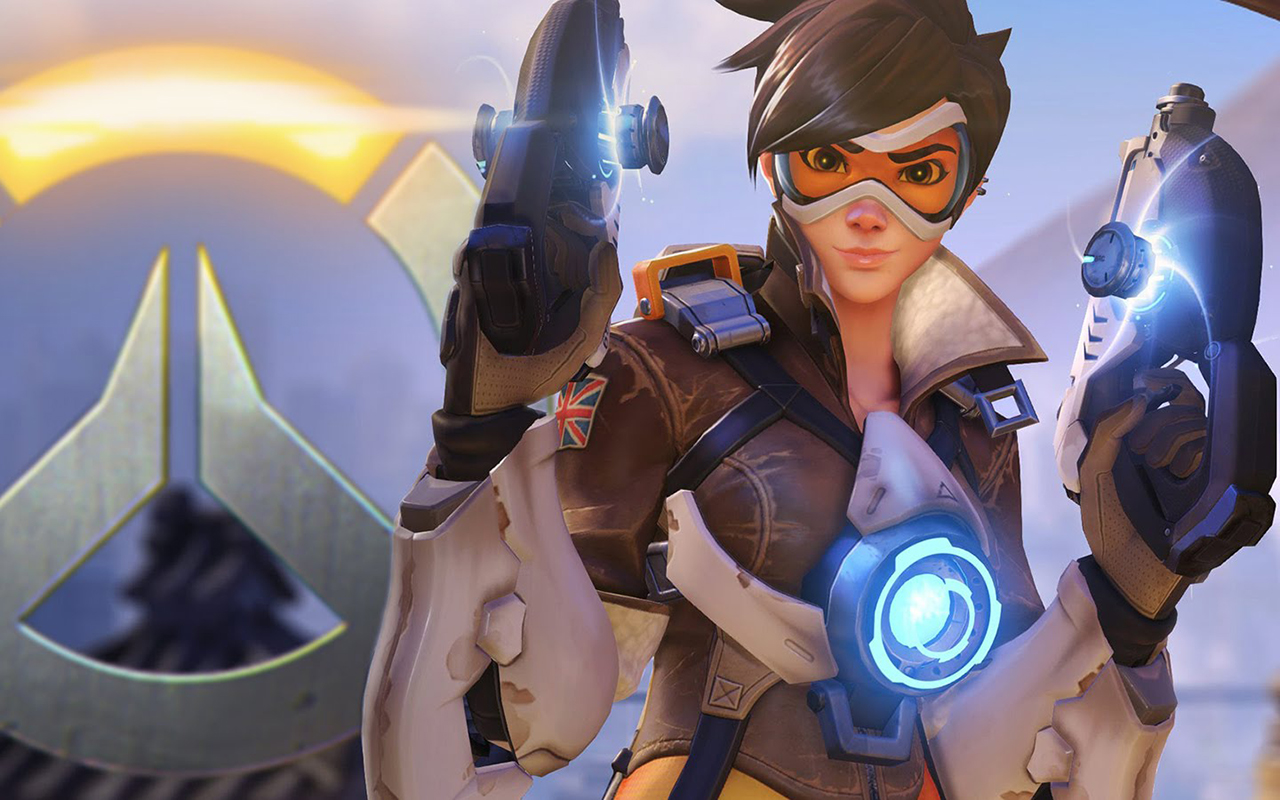
Tracer from Overwatch (Credit: Blizzard Entertainment)
ON DECEMBER 20, Blizzard Entertainment revealed that Tracer — the most visible character in its popular multi-platform video game, Overwatch — is a lesbian. Although it was initially unclear whether Tracer identified as lesbian, bisexual, or something else, Overwatch Lead Writer Michael Chu confirmed her sexuality in a December 22 tweet.
For those who have asked specifically, Tracer identifies as a lesbian.
— Michael Chu ? (@westofhouse) December 23, 2016
Overwatch has long been recognized as a game that offers up body-diverse characters from a variety of origins, and fan reactions to Tracer’s sexuality were — not surprisingly — overwhelmingly positive. As is always the case, however, there were more than a few detractors in the comments sections of various game-reporting outlets, and they were determined to rain on everyone’s parade.
First, though, let’s look at what Blizzard had to say about Tracer. In a statement to Kotaku, the game studio wrote:
As in real life, having variety in our characters and their identities and backgrounds helps create a richer and deeper overall fictional universe. From the beginning, we’ve wanted the universe of Overwatch to feel welcoming and inclusive, and to reflect the diversity of our players around the world. As with any aspect of our characters’ backgrounds, their sexuality is just one part of what makes our heroes who they are. From the very beginning of our work on Tracer’s story, it just felt right to make this an aspect of her character.
That’s a great message. It reinforces the fact that Tracer is still the zippy Brit fans have grown to love, while confirming that, yes, she was a lesbian even when Overwatch was in its developmental stages. Moreover, it communicates to LGBTQIA players that Blizzard is committed to making characters with their sexual identities. Overwatch doesn’t want to queerbait: to capitalize on pseudo-sexual chemistry between characters of the same sex in order to generate interest and revenue. The team behind the 2016 Game of the Year wants to make openly non-heterosexual characters a part of its diverse cast.
Many gamers can’t see the importance of that. On IGN’s coverage of the Tracer holiday comic, one commenter, “tired of hearing about all this LGBTQ stuff,” raged: “I don’t care one way or the other, could we please just quit making a big deal of something so minor?” Another said, “Every characters in a online games should be left ambigous in term of sexuality. In this case everyone would be happy [sic].” A third employed diminishing-humanity tactics in a transphobic comment, saying: “So next reveal is that Mcree is in fact a Woman who dresses as a Man and (to no one’s surprise since she comes from Brazil) sombra is in fact a transexual with a nose fetish (pop!).” That commenter went on to equate sexual identity and orientation with bestiality and the fetishization of differently abled bodies.
Here’s the thing, folks. When LGBTQIA individuals and characters come out of the closet, it’s always a big deal, because our society continues to marginalize non-cishet people. GLAAD’s analysis of 126 major film studio releases from 2015 found that only 17.5 percent of them contained LGBT characters. Those 22 films had 47 LGBT characters, 77 percent of whom were male. A more in-depth analysis from the Institute for Diversity and Empowerment at Annenberg found that only 2 percent of speaking roles in 2015 films belonged to LGB characters, far below the 3.5 percent of people who identify as lesbian, bisexual, or gay.
If you’re “tired of hearing about all this LGBTQ stuff,” ask yourself: When was the last time a character or person you know had to come out as straight or heterosexual for you to know that they were?
Because of how our society handles sex, gender, race, and ethnicity, any individual that isn’t obviously non-white, non-male, non-cisgender, or non-heterosexual will be assigned to those categories by default. That’s why Rashida Jones gets asked about her “tan”. That’s why we won’t bat an eye when someone asks a little boy if he has a girlfriend at school, but swear that he cannot possibly know if he is gay. To suggest that we shouldn’t announce or “label” a character’s non-heterosexuality, when it comes to light, is to say that we should keep that character shoved in the closet.
If you think characters’ orientations and identities should be left up to readers, watchers, and players, remember that The Outsiders author S.E. Hinton continues to go on frequent Twitter rants over fans who read Dallas and Johnny as gay, going so far as to say that her readers are “attacking” her for being straight, which — obviously? — is not a thing that happens.
The bottom line is this: Lesbian representation matters. Because there are still asshole creators who police interpretation of their work, many fans do not feel that mere interpretations are valid. They need open, affirming confirmation that their OTPs are real. Tracer’s coming out might not affect you at all, but stop sh*tting on it for everyone else.
















